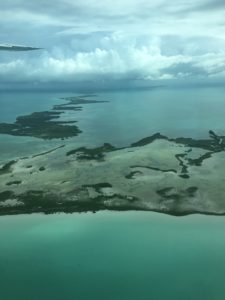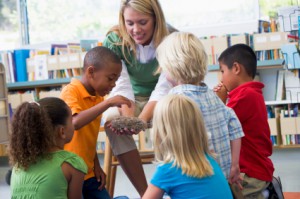 Today is the start of Teacher Appreciation Week in the United States, punctuated tomorrow by National Thank a Teacher Day. I used to be on the receiving end of the various expressions of gratitude bestowed upon our educators: platters of brownies or cookies from the Board of Education, free meals from restaurants, discounts at retail stores and, if you were really lucky, maybe a student or two (likely initiated by their parents) would bring a gift card or note.
Today is the start of Teacher Appreciation Week in the United States, punctuated tomorrow by National Thank a Teacher Day. I used to be on the receiving end of the various expressions of gratitude bestowed upon our educators: platters of brownies or cookies from the Board of Education, free meals from restaurants, discounts at retail stores and, if you were really lucky, maybe a student or two (likely initiated by their parents) would bring a gift card or note.
I would also reflect on the teachers that I was personally thankful for: my elementary teachers through graduate school professors (I still remember most of them by name and, with few exceptions, I received what I needed from all of them to learn and grow), my colleagues (who provided mentorship, support and comradery to me and so much more to their students) and my parents (who taught my earliest and most important lessons).
But now I find myself looking at this annual celebration of teachers from the other side—it has been two years since I became a science writer after nearly a decade of teaching high school science. The transition has completely changed my life in ways I could not have imagined and has also impacted the way I think about educators.
The main impetus for this career change was burnout. I had spent countless early mornings, late nights and weekends grading, planning lessons, completing professional development requirements and simply worrying about what challenges I would face the next morning, week or class period. The pressures of each school year would crescendo to a near breaking point every May, and then be swiftly wiped away by the arrival of summer break.
This cycle seemed inevitable, but I had been conditioned by the cultural narrative about teachers to consider it a tolerable tradeoff to the enviable benefits of teaching: holidays and summers “off”, ending the workday before 4 (even I groaned while typing that), great (read: better than average American, worse than someone with similar level of education and experience) benefits & retirement.
Unfortunately, this wasn’t sustainable for me. Moreover, legislative changes and budget cuts exacerbated the ever-present stress to new levels during my last few years as an educator. The strain was taking a toll on my mental health and my ability to be present with family and friends, especially my children.
In my new position, I have been met with intellectual challenges equal to those I encountered as a teacher but face a manageable amount of stress and few threats to work-life balance. Ending my teaching career was probably one of the best decisions I have ever made for my personal well-being. But despite this newfound joie de vivre, I am left with a feeling of guilt that resurfaces whenever issues I used to be so connected with make their way to the national spotlight.
Two of these have been in the news a lot this year—repercussions from budget cuts to education and gun violence in schools. I shouldered the burden of helping my students’ process school shootings and personally dealing with the reality that I could be in the middle of such a tragedy. Similar to the recent wave of teacher walkouts, budget measures that targeted educators brought me to the state capitol in protest.
Yet, I don’t have to face these issues with the sense of urgency I used to. My guilt is rooted in the fact that being a good teacher required selflessness and I chose to be selfish and leave because I couldn’t meet that expectation. It is perhaps because of this nagging feeling that I now feel a gratitude toward teachers that I didn’t before. I am still thankful to all the teachers in my past, but now my appreciation also extends to those that are and will become the future of education.
This year for Teacher Appreciation Week I want to express special gratitude for all of the teachers who feel the same pressures I did and are able to persist. I admire those of you already in the classroom and know you are putting your students’ needs ahead of your own. I’m grateful for all of you who are studying to become teachers, looking past all of the reasons you shouldn’t go into education and focusing instead on the impact you’ll have on future generations.
At a time when it is increasingly difficult to be optimistic about the future, knowing that there are still teachers willing to fight for themselves and their students gives me all the hope I need. Thank you teachers, this week and every week, for all you do!
Like this:
Like Loading...
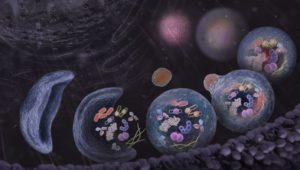
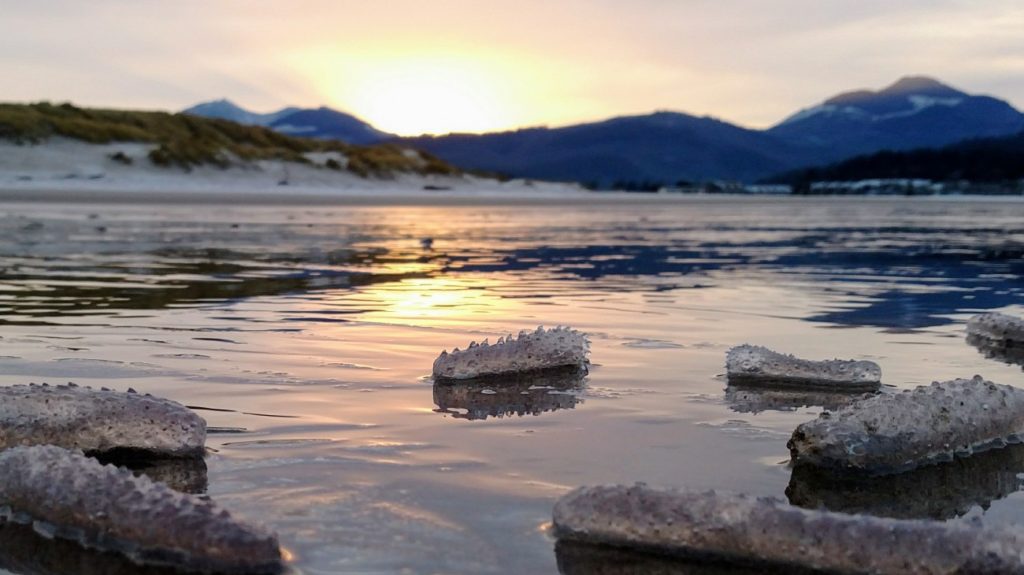


 Today is the start of Teacher Appreciation Week in the United States, punctuated tomorrow by National Thank a Teacher Day. I used to be on the receiving end of the various expressions of gratitude bestowed upon our educators: platters of brownies or cookies from the Board of Education, free meals from restaurants, discounts at retail stores and, if you were really lucky, maybe a student or two (likely initiated by their parents) would bring a gift card or note.
Today is the start of Teacher Appreciation Week in the United States, punctuated tomorrow by National Thank a Teacher Day. I used to be on the receiving end of the various expressions of gratitude bestowed upon our educators: platters of brownies or cookies from the Board of Education, free meals from restaurants, discounts at retail stores and, if you were really lucky, maybe a student or two (likely initiated by their parents) would bring a gift card or note.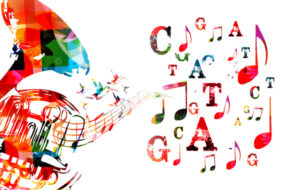
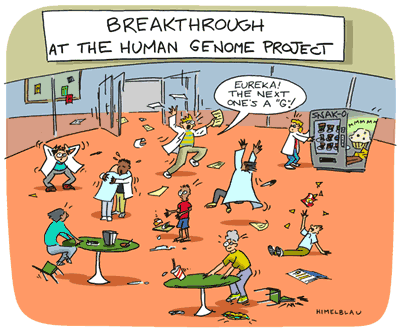
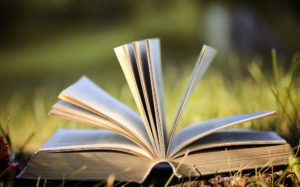
 Several weeks ago, I came across an article on ScienceNews.org about how Wikipedia is becoming a scientific resource, whether we like it or not. Scientists are reading Wikipedia, the article said, and it’s affecting how they write. The article cited
Several weeks ago, I came across an article on ScienceNews.org about how Wikipedia is becoming a scientific resource, whether we like it or not. Scientists are reading Wikipedia, the article said, and it’s affecting how they write. The article cited 